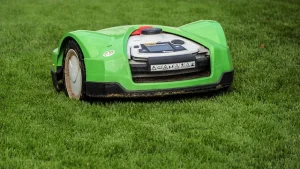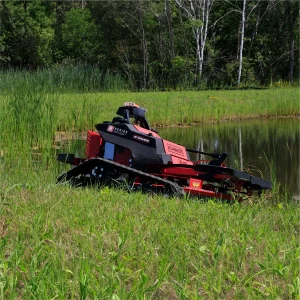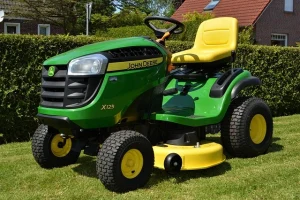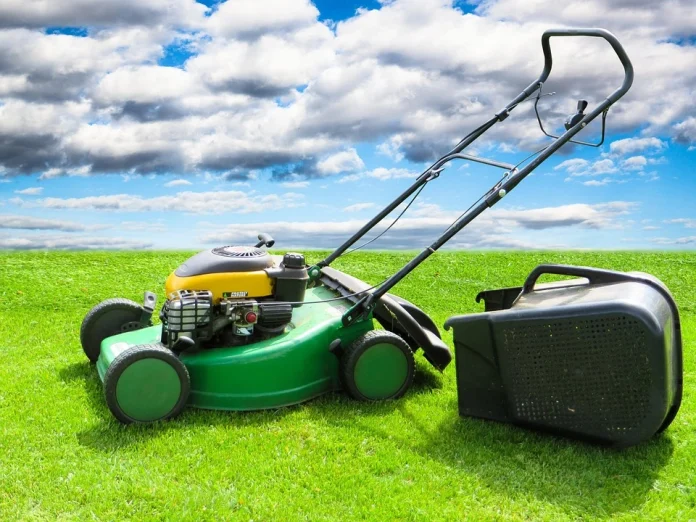Mowing slopes is a common landscaping task, but traditional lawnmowers often struggle with steep inclines or complex terrains. The advent of slope mowers provides an efficient and safe solution to this challenge. This article will guide you through the proper use of slope mowers and key considerations to help you achieve better results when mowing slopes.
Why Use a Slope Mower?
Compared to traditional mowers, slope mowers are specifically designed for complex terrains. Traditional mowers tend to lose stability on steep slopes and may even tip over, posing a risk to the operator. In contrast, slope mowers feature unique designs that ensure stability on inclines, significantly reducing operational hazards.
Additionally, many slope mowers come equipped with remote control functionality or automated systems, allowing operators to control the machine from a safe distance without working directly in hazardous areas. This further enhances safety. In terms of efficiency, slope mowers perform exceptionally well, enabling users to cover large areas in a short amount of time while reducing labor and time costs.
Types of Slope Mowers
There are several types of slope mowers, each with unique advantages and suitable applications.
1. Remote-Controlled Mowers

Remote-controlled mowers allow users to operate the machine using a remote control, making them ideal for hard-to-reach or dangerous areas such as steep slopes or slippery surfaces. Operators can stay at a safe distance while controlling the machine, avoiding direct exposure to hazardous environments.
2. Track-Type Mowers

Track-type mowers provide excellent traction and stability, making them suitable for very steep or soft terrains. Their low center of gravity and track-based structure prevent slipping or tipping over, ensuring safe operation on challenging landscapes.
3. Wheeled Mowers

Wheeled mowers are relatively lightweight and best suited for mowing on gentler slopes. Their maneuverability makes them ideal for small-scale or less complex mowing tasks.
Applications and Advantages of Slope Mowers
Slope mowers are widely used in various settings, including roadside embankments, railway slopes, orchards, golf courses, parks, and other areas requiring slope maintenance. Their advantages are particularly noticeable in these scenarios:
Strong Traction & Stability – These machines can handle diverse terrains, from steep inclines to slippery surfaces, while maintaining optimal performance.
Remote & Automated Operation – By allowing operators to control the mower from a safe distance, these features reduce direct exposure to hazardous areas, greatly enhancing safety.
Increased Efficiency – Slope mowers minimize manual labor and maximize productivity, making them especially beneficial for large-scale mowing projects.
Important Considerations When Using a Slope Mower
To ensure safety and efficiency, follow these guidelines when using a slope mower:
Pre-Operation Preparation
Inspect the Machine – Before starting, thoroughly check all components to ensure the mower is in good working condition.
Clear the Area – Remove obstacles such as rocks and branches that may obstruct the mower’s operation. Also, mark or fill any holes in the ground to prevent the machine from getting stuck.
During Operation
Maintain Visibility – Keep the mower within your line of sight at all times to ensure safe operation.
Monitor Weather Conditions – Avoid using the mower in wet or extreme weather to prevent accidents.
Follow Safety Guidelines – Adhere to the manufacturer’s safety instructions, avoiding sudden starts, stops, or sharp turns on slopes to prevent loss of control.
How to Choose the Right Slope Mower
When selecting a slope mower, consider the following factors:
1. Terrain Type
Complex Terrains: If the mowing area features steep or uneven slopes, opt for a track-type or remote-controlled mower.
Gentler Slopes: A wheeled mower may be a more convenient choice for relatively flat or moderate inclines.
2. Mowing Area & Frequency
Large-Scale Mowing: If frequent, large-area mowing is required, an autonomous mower with a high degree of automation will greatly improve efficiency.
Small-Scale Mowing: For smaller tasks, a lightweight wheeled mower may be more suitable.
3. Stability & Safety Features
Machine Stability: Ensure the mower maintains balance across various conditions and is equipped with necessary safety mechanisms.
Operator Safety: Choose a mower with remote control or automation features to enhance operational safety.
4. Maintenance Costs & After-Sales Service
Maintenance Expenses: Invest in a high-quality, durable mower to minimize long-term maintenance costs.
Reliable Support: Select a brand with excellent customer service to ensure timely assistance if issues arise.
By selecting the right slope mower and following proper operational procedures, you can mow slopes more efficiently and safely, enhancing the overall quality and effectiveness of landscaping and land management tasks.

